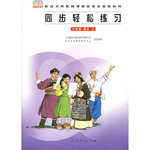题目内容
9月15日(星期三), 一个美国中学生代表团将到你校访问,师生一行十几人将在参观完学校后与你班进行座谈会。请根据下列内容和提示,写一篇口头通知稿。
要点如下:
1. 9月15日上午8:45在校门口集合,欢迎来校参观的美国学生。
2. 带客人参观学校,(图书馆,实验室,体育馆)。
3. 与你班进行座谈会,介绍英语学习方法,之后自由交谈。
4. 11:30和美国学生在食堂共进午餐,并互赠小礼物。
注意: 1.通知稿须包括所给要点,但不要逐条翻译。
2.通知格式已给出,不计入总数。
3.字数:80—120个词。
4.代表团delegation
Dear classmates:
May I have your attention, please?
That’s all. Thank you!
Dear classmates.
May I have your attention, please?
An American high school delegation, consisting of more than 10 people will visit our school. We’ll meet at the school gate at 8:45 a.m., and give them a warm welcome. Then we’ll show them around some parts of the school, such as the library, the lab and the gym.
Afterwards, they will tell us the ways of learning English. What’s more, we’ll have a free talk with the visitors, which will be a good opportunity for us to practice our English. At 11:30 we’ll have lunch with them in the dining-hall, and then exchange the presents with each other.
That’s all. Thank you.
【解析】
试题分析:
题目要求写一篇口头通知稿。要点包括9月15日上午8:45在校门口集合,欢迎来校参观的美国学生;带客人参观学校,(图书馆,实验室,体育馆);与你班进行座谈会,介绍英语学习方法,之后自由交谈;11:30和美国学生在食堂共进午餐,并互赠小礼物。通知稿须包括所给要点,但不要逐条翻译。通知格式已给出,不计入总数。
对于题目所提供的说明,应认真分析、反复推敲,搞清提出的内容要求,抓住所要表达的信息点。审题时要审清文体,注意格式上的不同,避免出错。写这篇通知稿作文时,一定要切题,抓住中心,紧扣要点。不要任意发挥,画蛇添足,也不要丢三落四,要点不全。找出最密切相关的要点,列出写作提纲。
亮点说明:
范文使用了一些重要的语法知识:现在分词作定语consisting of more than;非限制性定语从句we’ll have a free talk with the visitors, which will be…等语法知识使用得当,叙事清晰。
范文注意使用了一般现在时、一般将来时等不同的时态来叙述不同的事情,对时态有较好的把握。
范文注意使用such as, afterwards, what’s more, and then等来衔接句子和段落,表示事情发生的时间顺序,使作文更有条理,做到了行文连贯。
范文使用了很多固定短语consist of, show around, the way of doing sth., exchange…with each other等,使作文内容更加充实。
考点:提纲作文

 同步轻松练习系列答案
同步轻松练习系列答案 课课通课程标准思维方法与能力训练系列答案
课课通课程标准思维方法与能力训练系列答案